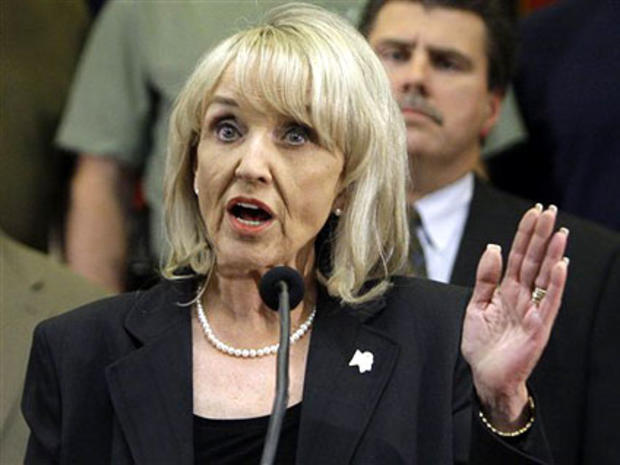Web Turns into Weapon in Arizona Immigration Fight
Supporters and opponents of Arizona's new immigration law are going at it with gusto as their argument moves from town halls to cyber gathering places.
A case of dog bites man? Something like that.
"By now, it would be more surprising not to see a political movement organizing online, or to see online technology that at least someone hasn't tried to use for political ends," said Colin Delany with Epolitics.com. "The tools are available to everyone, they don't care who uses them, and people are going to put the technology they depend on in their everyday lives to work for politics."
Even though it's only been a week since Governor Jan Brewer signed SB 1070 into law, passions ignited by the controversial bill, which would crack down on illegal immigration, have flooded cyberspace. Reaching for now-familiar high-tech tools, the sides have set up opposing pages on social network sites to mobilize the like-minded and get out the message.
Indeed, the "1 Million Strong Against the Arizona Immigration Law SB1070" page was well on its way toward its goal. By Thursday afternoon, almost 840,000 people had joined. (The page also included links explaining how to contact Governor Brewer, which might help explain why phone calls to her office were automatically being routed to a messaging machine.
Meanwhile, the Arizona Hotel and Lodging Association has created its own Facebook page where it's resisting calls for a boycott of Arizona, warning that its members would get hurt needlessly. "Please spread the word that AZ Tourism was not consulted or supportive of this legislation and regardless of your stance on this bill - the only people that will suffer from a boycott are tourism employees."
Arizona Immigration Boycott Zeroes in on Baseball
Will Other States Follow Arizona's Lead on Immigration?
And so it's gone, extending to the Twitterverse where 140-character expressions of damnation have been met by equally heartfelt declarations of, well, it's about time they did something. But with several generations of people having grown up in an increasingly wired world, the use of these technology tools to gain attention and sway opinion has become second nature.
"This is the default position. Any serious political movement, whether local or national, is going to go viral and social," said Frank Sesno, who directs of the School of Media and Public Affairs at The George Washington University. "One, it's effective. Two, it's and easy and three, people have become accustomed to interacting, connecting and mobilizing online. They expect it. And the speed and anonymity and the ability to raise money is unparalleled. You can't ignore it if you're trying to mobilize opinion."
Into the Mainstream
Sesno's onto something. We're long past the stage where social networking tools were the esoteric preserve of the digerati. (Now, even Hugo Chavez is tweeting.) When opposing sides nowadays seek to sway public opinion, social networking has become so mainstream that the technology is expected to play a part in any political struggle. And not just in the United States, either. During last summer's demonstrations against the results of the Iranian presidential contest, the speed with which protesters used Twitter and social networking to post messages and photographs caught the regime off guard.
The unanswered question in Arizona is whether these tools will make a difference on the ground. It's an achievement when a group can sign up a million people for their Facebook page, yet how much are votes really worth when they are just a mouse click away? To be sure, the creation of that sort of cyber watering hole can help later with fund-raising and other organizational activities. But if most of the participants don't live in Arizona, they can't have a direct say in what happens in the state.
"There's a big difference between picking up a tool and wielding it effectively, since you need to bring power and influence to bear where they'll actually make a difference," according to Delany. He added that online tools do tend to let small groups of noisy activists look more potent than they actually are, pointing to Ron Paul's popularity with his supporters during the 2008 Republican primary contest and (he suspects) the Tea Partiers now. "The tools help, but they don't take the place of a good message."
But they do make it a lot easier to spread one.
